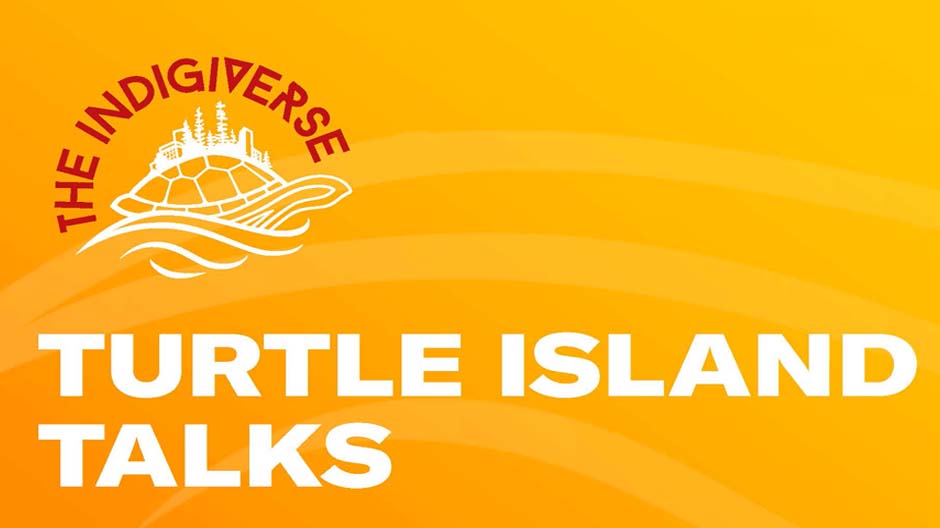
Cultivating Reciprocity: Practical Pathways to Support Indigenous Organizations on Turtle Island
On Turtle Island, the ancestral lands now largely known as North America, Indigenous peoples are leading transformative work in every sector imaginable – from cultural revitalization and environmental stewardship to legal advocacy, health, and education. These Indigenous-led organizations are not merely responding to historical injustices; they are actively building vibrant, self-determined futures for their communities. For non-Indigenous allies and organizations seeking to contribute meaningfully, the path forward is one of informed engagement, respectful partnership, and sustained commitment. This article outlines practical and impactful ways to support these vital Indigenous organizations.
Understanding the Landscape: Why Indigenous-Led Matters
Before detailing methods of support, it is crucial to understand why Indigenous organizations are uniquely positioned to drive positive change. Centuries of colonial policies, including residential schools, land dispossession, and systemic discrimination, have created deep-seated challenges. Yet, Indigenous communities have demonstrated unparalleled resilience, continuing to uphold their cultures, languages, and governance systems. Indigenous-led organizations are rooted in traditional knowledge, community priorities, and self-determination principles. They understand the nuances of their communities’ needs and possess the inherent capacity to devise effective, culturally appropriate solutions. Supporting them is an investment in self-determination, reconciliation, and a more equitable future for all inhabitants of Turtle Island.
1. Direct Financial Contributions: Fueling Self-Determination
The most direct and often most impactful way to support Indigenous organizations is through financial contributions. Many Indigenous groups operate with limited resources, often facing systemic underfunding compared to their non-Indigenous counterparts.

- Unrestricted Funding: Where possible, provide unrestricted funds. This allows organizations the flexibility to allocate resources where they are most needed, addressing emergent priorities and investing in long-term strategic goals without the constraints of narrowly defined project grants.
- Research and Vet: Prioritize organizations that are genuinely Indigenous-led and governed. Look for transparent reporting, clear mission statements, and a track record of community engagement. Resources like Indigenous-led foundations (e.g., Indigenous Peoples Resilience Fund, Native American Rights Fund) can guide you to reputable recipients.
- Recurring Donations: Set up monthly or annual recurring donations. Consistent funding allows organizations to plan for the future, retain staff, and sustain critical programs without constantly seeking new grants.
- Examples of Impact: Financial support directly translates into tangible outcomes: funding language immersion programs, supporting Indigenous youth initiatives, providing legal aid for land and treaty rights cases, or enabling essential health services in remote communities. For instance, the Native American Rights Fund (NARF) has been instrumental in landmark legal battles defending Indigenous sovereignty and natural resources since 1970.
2. Amplifying Indigenous Voices and Stories: Shifting the Narrative
Support extends beyond financial aid to the realm of communication and cultural advocacy. Indigenous peoples have long been marginalized or misrepresented in mainstream media.
- Follow and Share: Actively follow Indigenous journalists, artists, activists, and organizations on social media. Share their content, articles, and calls to action. This helps to counteract misinformation and brings authentic Indigenous perspectives to a broader audience.
- Support Indigenous Media: Subscribe to, read, and listen to Indigenous-owned and operated media outlets. Publications like The Eastern Door, APTN News, and podcasts like The Secret Life of Canada provide vital platforms for Indigenous storytelling and investigative journalism.
- Attend and Engage: Participate in Indigenous cultural events, workshops, and public lectures when invited and appropriate. Learning directly from Indigenous knowledge keepers fosters understanding and demonstrates solidarity.
- Challenge Misinformation: When you encounter stereotypes or inaccurate portrayals of Indigenous peoples, respectfully challenge them. Direct people to credible Indigenous sources of information. This proactive stance is crucial in dismantling systemic racism.

3. Advocacy and Political Action: Upholding Rights and Justice
Systemic change often requires political pressure and advocacy. Non-Indigenous allies have a critical role to play in supporting Indigenous rights at governmental levels.
- Educate Yourself on Key Issues: Understand pressing issues such as the Missing and Murdered Indigenous Women, Girls, and Two-Spirit People (MMIWG2S+) crisis, the ongoing struggle for clean drinking water in First Nations communities, and the implementation of the United Nations Declaration on the Rights of Indigenous Peoples (UNDRIP).
- Contact Elected Officials: Write to your local, provincial/state, and federal representatives. Urge them to support legislation that upholds Indigenous treaty rights, protects Indigenous lands, and adequately funds Indigenous-led initiatives. Reference specific calls to action from Indigenous organizations.
- Support Land Back Initiatives: Learn about and support local Land Back movements, which seek to return ancestral lands to Indigenous stewardship. This can involve advocating for policy changes or supporting organizations directly involved in land repatriation.
- Participate in Peaceful Demonstrations: When called upon by Indigenous leaders, join peaceful protests or rallies to show solidarity and amplify calls for justice. Always follow Indigenous leadership and protocols in these spaces.
4. Ethical Consumption and Indigenous Businesses: Economic Empowerment
Economic self-sufficiency is a cornerstone of self-determination. Supporting Indigenous entrepreneurs and businesses is a powerful way to contribute to community well-being.
- Buy Indigenous: Seek out and purchase products and services from Indigenous-owned businesses. This includes art, fashion, food, tourism, and professional services. Websites like Shop First Nations or specific Indigenous business directories can help locate these enterprises.
- Understand Cultural Appropriation vs. Appreciation: Be mindful of cultural appropriation. Purchase authentic Indigenous art and crafts directly from Indigenous creators, ensuring they are fairly compensated. Avoid products that mimic Indigenous designs or symbols without the consent or involvement of Indigenous artists. "There is a deep difference between taking inspiration from a culture and stealing it for profit," notes a prominent Indigenous artist.
- Support Fair Trade Practices: If buying products that feature Indigenous materials or designs from non-Indigenous companies, ensure they adhere to strict fair trade principles and genuinely benefit Indigenous communities.
5. Volunteering and Skill-Based Support: Reciprocal Relationships
Offering your time and skills can be incredibly valuable, provided it is done with humility, respect, and in response to expressed needs.
- Offer Professional Skills: If you have professional skills (e.g., grant writing, legal expertise, accounting, marketing, web design, carpentry), offer them to Indigenous organizations. Always ask first what is needed, rather than assuming.
- Long-Term Commitment: Volunteer opportunities should ideally be long-term and built on trust. Short-term, sporadic volunteering can sometimes create more work for understaffed organizations.
- Respect Protocols: Understand and respect Indigenous cultural protocols, governance structures, and decision-making processes. Your role is to support, not to lead or dictate. Avoid a "savior complex"; true support is about working with Indigenous communities, not for them.
- Building Relationships: The most impactful volunteering stems from genuine relationships. Attend community events (when invited), listen actively, and build trust over time.
6. Education and Personal Learning: A Lifelong Journey
Meaningful support begins with personal responsibility for learning and unlearning. This is an ongoing process for non-Indigenous individuals.
- Read Indigenous Authors: Engage with books, articles, and poetry by Indigenous writers. Their voices offer invaluable insights into history, culture, and contemporary issues. Authors like Leanne Betasamosake Simpson, Tanya Talaga, Thomas King, and Robin Wall Kimmerer provide diverse perspectives.
- Learn Local Indigenous History: Research the Indigenous nations whose traditional territories you reside on. Understand their histories, treaties (or lack thereof), and current struggles.
- Understand Land Acknowledgments: Go beyond reciting a rote land acknowledgment. Understand its purpose: to recognize Indigenous sovereignty, reflect on colonial history, and commit to ongoing reconciliation and decolonization.
- Challenge Internal Biases: Reflect on your own biases and assumptions about Indigenous peoples. Actively work to dismantle internalized racism and stereotypes. "Decolonization is not a metaphor," as Eve Tuck and K. Wayne Yang assert, it requires profound societal and personal shifts.
- Support Language Revitalization: Learn about efforts to revitalize Indigenous languages, many of which are critically endangered due to colonial policies. Support organizations working on language preservation.
7. Building Authentic Relationships: The Foundation of Support
Ultimately, the most profound and sustainable support flows from authentic relationships built on trust, respect, and reciprocity.
- Listen Actively: Prioritize listening over speaking. Indigenous communities have been speaking for centuries; it is time for others to truly hear.
- Be Patient and Consistent: Building trust takes time. Be patient, consistent, and reliable in your engagement.
- Offer Reciprocity: Think about what you can offer in return for the knowledge and experiences you gain. This could be sharing skills, resources, or simply showing up consistently.
- Follow Indigenous Leadership: In all efforts, follow the lead of Indigenous individuals and organizations. They are the experts in their own experiences and solutions.
Conclusion: A Collective Path Towards Justice
Supporting Indigenous organizations on Turtle Island is not merely an act of charity; it is an act of justice, reconciliation, and an investment in a more equitable future. From direct financial contributions and political advocacy to amplifying voices and fostering genuine relationships, each pathway offers a meaningful opportunity to contribute. The strength, resilience, and wisdom of Indigenous peoples are invaluable assets to all inhabitants of Turtle Island. By actively and thoughtfully supporting their self-determined work, we contribute to healing the wounds of the past and building a future where all communities can thrive. The responsibility rests with each of us to engage, learn, and act in solidarity, ensuring that Indigenous voices lead the way towards true justice and prosperity.


